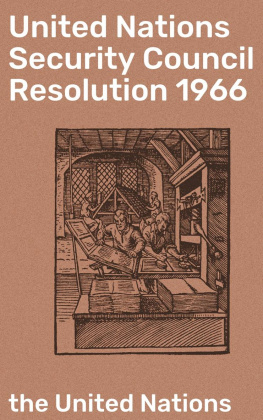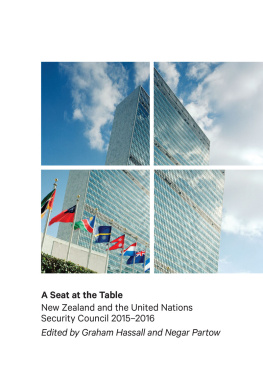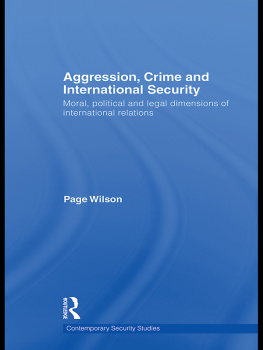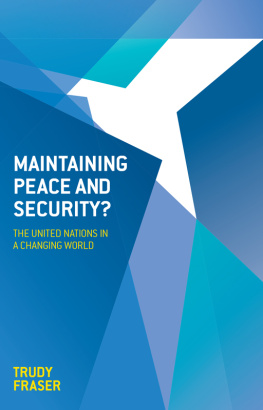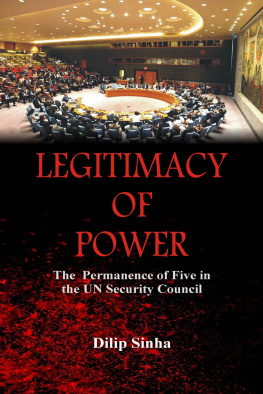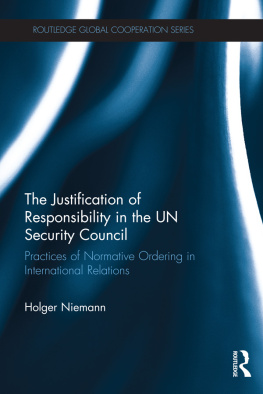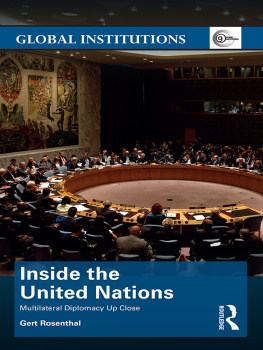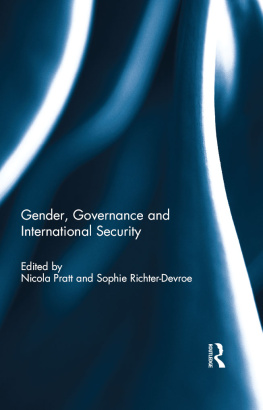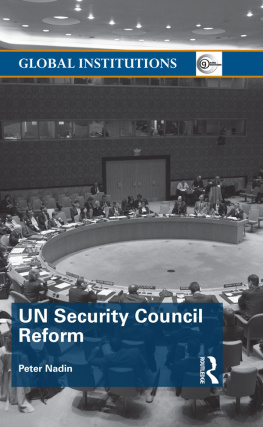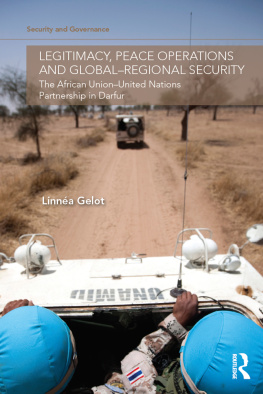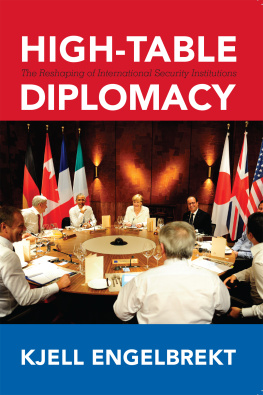Vaughan Lowe - The United Nations Security Council and War: The Evolution of Thought and Practice Since 1945
Here you can read online Vaughan Lowe - The United Nations Security Council and War: The Evolution of Thought and Practice Since 1945 full text of the book (entire story) in english for free. Download pdf and epub, get meaning, cover and reviews about this ebook. year: 2008, publisher: Oxford University Press, USA, genre: History. Description of the work, (preface) as well as reviews are available. Best literature library LitArk.com created for fans of good reading and offers a wide selection of genres:
Romance novel
Science fiction
Adventure
Detective
Science
History
Home and family
Prose
Art
Politics
Computer
Non-fiction
Religion
Business
Children
Humor
Choose a favorite category and find really read worthwhile books. Enjoy immersion in the world of imagination, feel the emotions of the characters or learn something new for yourself, make an fascinating discovery.

- Book:The United Nations Security Council and War: The Evolution of Thought and Practice Since 1945
- Author:
- Publisher:Oxford University Press, USA
- Genre:
- Year:2008
- Rating:4 / 5
- Favourites:Add to favourites
- Your mark:
The United Nations Security Council and War: The Evolution of Thought and Practice Since 1945: summary, description and annotation
We offer to read an annotation, description, summary or preface (depends on what the author of the book "The United Nations Security Council and War: The Evolution of Thought and Practice Since 1945" wrote himself). If you haven't found the necessary information about the book — write in the comments, we will try to find it.
The United Nations Security Council and War examines the extent to which the work of the UN Security Council, as it has evolved, has or has not replaced older systems of power politics and practices regarding the use of force. Its starting point is the failure to implement the UN Charter scheme of having combat forces under direct UN command. Instead, the Council has advanced the use of international peacekeeping forces; it has authorized coalitions of states to take military action; and it has developed some unanticipated roles such as the establishment of post-conflict transitional administrations, international criminal tribunals, and anti-terrorism committees.
The book, bringing together distinguished scholars and practitioners, draws on the methods of the lawyer, the historian, the student of international relations, and the practitioner. It begins with an introductory overview of the Councils evolving roles and responsibilities. It then discusses specific thematic issues, and through a wide range of case studies examines the scope and limitations of the Councils involvement in war. It offers frank accounts of how belligerents viewed the UN, and how the Council acted and sometimes failed to act. The appendices provide comprehensive information--much of it not previously brought together in this form--of the extraordinary range of the Councils activities.
This book is a project of the Oxford Leverhulme Programme on the Changing Character of War.
Vaughan Lowe: author's other books
Who wrote The United Nations Security Council and War: The Evolution of Thought and Practice Since 1945? Find out the surname, the name of the author of the book and a list of all author's works by series.

